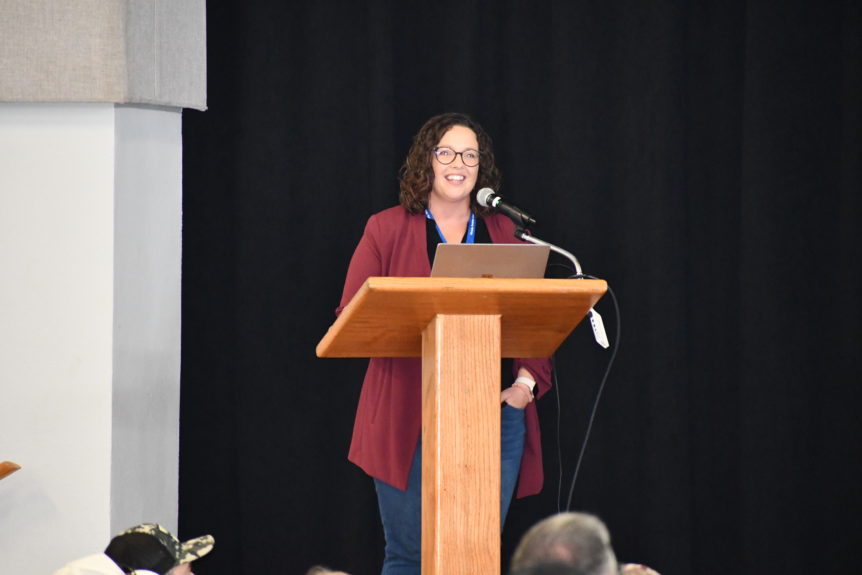
The 2024 Florida Tomato Institute drew a large crowd of growers and other industry stakeholders to Clewiston, Florida, in early September. The event showcases the latest in tomato research, new product offerings from industry and featured presentations on worker safety and plant improvement.
WORKER PROTECTION
The federal government has proposed new worker protection rules, and ordinances are being proposed at the local level to protect outdoor laborers. Paul Monaghan, (University of Florida Institute of Food and Agricultural Sciences (UF/IFAS) associate professor of agricultural education and communication, spoke about a training program UF/IFAS has developed to ensure workers are staying safe in harsh outdoor conditions.
One of the keys is staying properly hydrated, which Monaghan said can be a challenge even for those who are actively seeking to do so. He showed a slide of a water cooler with the small cone-shaped paper cups. While that is an approved water dispenser, he suggested it has problems.
“We have to make water and hydration a lot easier,” he said. “Workers are not inclined to stop and fill up a 4-ounce cup two or three times per hour.”
A solution might be larger personal water bottles that workers keep with them in the field. He acknowledged this has some food-safety issues that would need to be worked through.
BREEDING UPDATE
Jessica Chitwood-Brown, the new UF/IFAS tomato breeder based at the Gulf Coast Research and Education Center, spoke and introduced herself to those in attendance. She provided an update on breeding efforts underway and her goals in her new position.
Some of the existing research has been aimed at developing varieties with resistance to target spot and bacterial spot. Also, she briefed attendees on work to develop stakeless tomato varieties, which could be machine harvested to help growers who are struggling with sourcing and affording labor.
Chitwood-Brown asked growers to work with her and provide feedback on current and future research needs. “First we need to identify the challenges to understand possible solutions, and then work together to develop those solutions,” she said.

By Frank Giles










